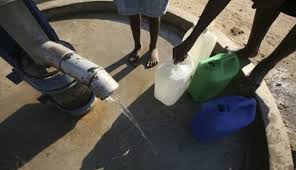Some schools in the Matabeleland region do not have adequate water and sanitation facilities in adherence to the World Health Organization (WHO) standards, Parliament has learnt.
MDC legislator Priscila Misihairabwi-Mushonga made these remarks while presenting a situational report of the Portfolio Committee on Primary and Secondary Education on field visits conducted from selected schools to check compliance with COVID-19 regulations.
The assessment focused on checking for compliance with the Standard Operating Procedures issued by the Ministry in public schools, preparedness for October/November examinations and assessing the extent to which the government is supporting menstrual hygiene management among the rural-school girls in light of the COVID-19 Pandemic.
Cabinet on Tuesday announced that schools will reopen in a phased manner starting with examination classes on march 12, while the rest of the classes will reopen on March 22.
Misihairabwi-Mushonga said the committee established that the issues of water and sanitation were legacy issues haunting the education sector and the COVID-19 pandemic has exacerbated the situation.
“Magwegwe High School in Bulawayo is one of the schools faced with serious water issues as the local borehole water is unfit for consumption. The bulk of the schools in Zimbabwe are facing acute water and sanitation challenges. However, some schools had boreholes within the school while others had to travel like 1.5km to fetch water for use in the school,” she said.
“An extreme case was recorded in Matebeleland, at Sitezi Primary and Secondary Schools which did not have any boreholes and learners had to bring their own water from Tuli River which is quite a distance from the school. This in effect has a negative impact on the well-being of the learners as well as the school’s ability to fully function especially with the current global pandemic.”
She explained that learners from schools facing water challenges had to fetch water from unclean water sources after school while others fetch water during learning time.
“Some schools in Manicaland benefited from donations from World Vision and Plan International. Mhandarume High School and Mashonjowe Primary School received water tanks and tapped water buckets,” said Misihairabwi-Mushonga.
She explained that learners from schools facing water challenges had to fetch water from unclean water sources after school while others fetch water during learning time.
“Some schools in Manicaland benefited from donations from World Vision and Plan International. Mhandarume High School and Mashonjowe Primary School received water tanks and tapped water buckets,” she said.
“Considering the population density of most schools, the challenges of water and sanitation make it difficult to meet the high levels of hygiene required under WHO guidelines.”

